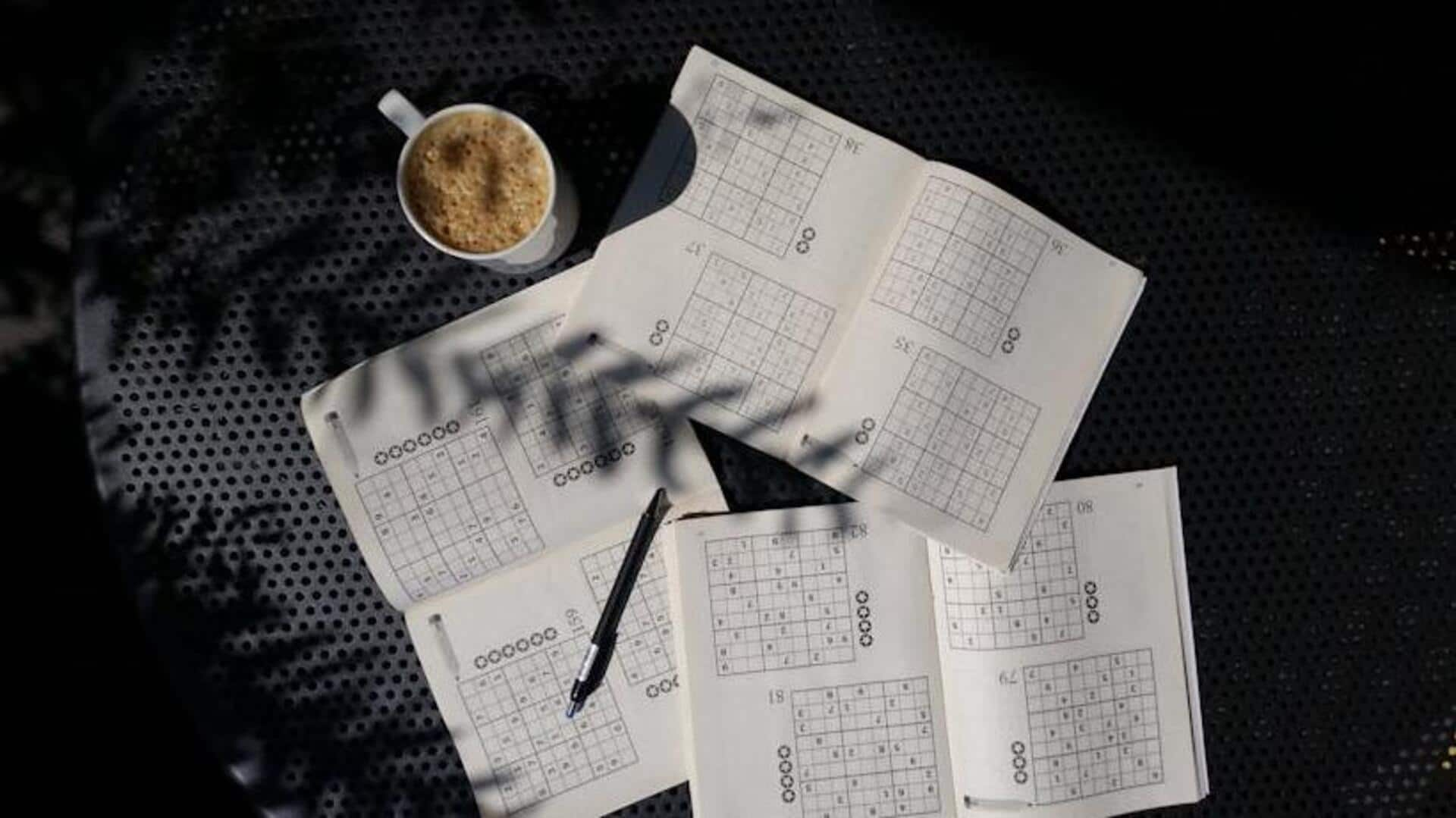
5 ways Sudoku improves your patience
What's the story
Sudoku, the famous number puzzle, is more than just an interesting pastime, it is also a great way of developing patience. By making Sudoku a part of your daily routine, you can get more focused and persistent. In this article, we will take you through five practical ways of using Sudoku to develop patience. All the methods will help you build this important skill gradually through consistent practice and mindful participation with the puzzles.
Beginner's step
Start with easy puzzles
Start your Sudoku journey by attempting easy puzzles. These simpler grids let you get used to the rules without getting overwhelmed. While solving these puzzles, you'll learn to tackle problems in a systematic and patient manner. This gradual introduction builds confidence and encourages perseverance as you move on to more challenging levels.
Timed challenge
Set time limits
Introducing time limits for solving Sudoku puzzles encourages focused thinking and curtails the impulse to rush. Setting a reasonable timeframe fosters a disciplined approach, teaching you to balance speed with accuracy. This practice not only enhances your problem-solving skills but also improves your ability to manage frustration and develop patience, as you learn the value of precision over haste in every attempt.
Progressive challenge
Increase difficulty gradually
Once you feel comfortable with easy puzzles, it's time to move on to medium or hard ones. This step-up in difficulty not only tests your problem-solving skills but also requires greater patience and sharper concentration. Such a gradual increase ensures you're always getting better, without being overwhelmed by puzzles that look too complex too soon. It's a balanced approach to hone your skills while keeping your patience in check.
Routine building
Practice daily consistency
Incorporate Sudoku into your daily routine by dedicating specific times each day for solving puzzles. Do this consistently over weeks/months, rather than sporadically. When convenient, only occasionally doing so won't yield desired results quickly enough. If at all possible, try sticking closely to a schedule. Even if it means sacrificing other activities temporarily, until the habit is firmly established.
Learning from errors
Reflect on mistakes
After completing each puzzle, take a moment to reflect upon the mistakes made during the process. Identify areas where you could improve. Analyzing errors helps understand thought patterns leading to incorrect conclusions. Ultimately, fostering greater awareness and self-discipline is necessary for cultivating a true sense of patience.